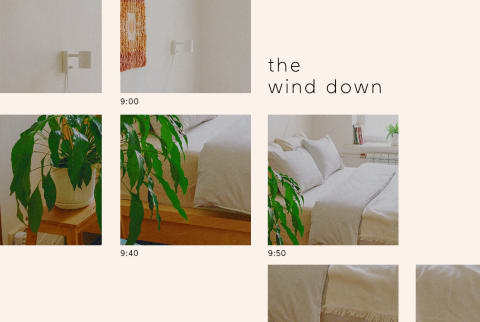This Clinical Psychologist Used To Struggle To Sleep — Until Finding This Routine


Advertisement
I used to not be a great sleeper. In college, I had all of the worst sleep habits and had a really hard time getting up in time for classes and staying awake during classes. But then I started volunteering in a sleep research lab, and I learned about sleep hygiene and the basics of behavioral sleep medicine, and it got better.
Over the years, I have learned that sleep is my ally and a great strategy for maintaining optimal effectiveness and efficiency during the day. Now, I never need an alarm to wake up in the morning, making sure I get to bed at the right time so that I allow myself plenty of time to get the sleep my body needs.
I see sleep as my commute to tomorrow.
I see sleep as my commute to tomorrow. I think, "What time do I need to wake up in the morning?" Then I think backward, figuring out how much sleep I need to be as effective as I want to be, then figure out when I need to get to bed with enough time to get that amount of sleep. Then I figure out what time I need to start winding down so that I am ready for sleep at the right time. Thinking that way means I almost always get the sleep I need and almost never need an alarm because I wake up well rested in the morning.

- Average hours I sleep a night: 7½ to 8, for real!
- Ideal bedtime: 11 p.m.
- Ideal wake-up time: 7 a.m.
- Nightstand essentials: A clock with the light dimmed all the way. Not much else!
- Favorite place I've ever slept: My own bed after a few days of traveling.
- Caffeine consumption: Maybe 1 espresso in the morning
- How I track my sleep: I don't really track it with tech
- The last product or habit that changed my sleep for the better: Packing an eye mask and earplugs in my travel bag whenever I go out of town
- The first thing I do when I wake up: Get out of bed and get my feet on the floor

Advertisement
9:30 p.m: Before starting my wind-down routine, I'm probably on the couch on my laptop working. I usually have the TV on in the background.
10 p.m.: About an hour before I plan on going to bed, I switch my computer activities to something more boring (like clearing out junk email) or reading on my phone. About a half-hour before bed, I put down any devices.
If I feel like I can't put down my phone, I will switch to a time-restricted mobile game, like a sudoku puzzle. I know it will take me four to seven minutes to complete one, and that tells me when to put down my phone.
10:40 p.m.: Then I will relax a bit more, think about my next day, make any lists I need to make, and then start getting ready for bed.
10:50 p.m.: I take the dog out one last time, make sure the kitchen is clear for the morning, then head into the bathroom to brush my teeth and do all the rest of the pre-bed stuff.
11 p.m.: I turn off the lights and get into bed. As soon as I get into bed, I close my eyes, lie on the pillow, and start breathing deeply. Pretty soon I am asleep.
Advertisement

Dr. Michael Grandner, internationally-recognized expert on sleep and health, is a licensed Clinical Psychologist certified in Behavioral Sleep Medicine, and Lead Scientific Advisor to Sleep Reset. He is Director of the Sleep and Health Research Program, and Associate Professor of Psychiatry, Psychology, Medicine, Nutritional Sciences, and Clinical Translational Science at the University of Arizona.
Through his research, he studies how sleep is an important aspect of health, like diet and exercise. He studies not only what happens to our health when we do not get enough sleep, but also how and why people sleep the way they do in the real world. His clinical work focuses on non-medication treatments for sleep disorders. His research examines the relationship between sleep and obesity, diabetes, heart disease, daytime functioning, and longevity.